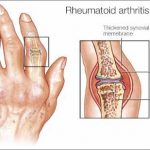Effective All-Natural Tips for Arthritis
1. Reach and Maintain a Healthy Weight
Additional body fat strains joints, but accumulated fat itself can also cause problems to joints that are already sensitive and partially damaged. Fat does more than just sit on your body — it’s also an active tissue that creates and releases hormones and chemicals. Some of these promote inflammation and can contribute to worsening arthritis all over your body.
2. Improve Your Diet
Foods for helping treat arthritis include:
Omega-3 foods: Omega-3s are powerful at lowering inflammation and also have other benefits, flaxseeds, chia seeds and walnuts, which are all great choices.
Foods high in sulfur: Sulfur contains a form of methylsulfonylmethane (MSM) that reduces joint inflammation and helps rebuild your tissues. MSM has been shown in studies to lower pain and function impairment compared to placebo-controlled groups. Sources include onions, garlic, asparagus and cabbage.
Bone broth: Bone broth is one of the best natural sources of collagen, which contains the amino acids proline and glycine that help rebuild connective tissue and have many more benefits. Additionally, bone broth supples chondroitin sulphates and glucosamine, antioxidants that help lower inflammation, arthritis and joint pain.
High-antioxidant foods (especially fruits and vegetables): Colorful fruits and veggies are packed with antioxidants, vitamin C, vitamin A, fiber, magnesium, potassium, digestive enzymes and anti-inflammatory compounds. Some of the best sources include leafy greens, cruciferous veggies, berries, melon, papaya, avocado and pineapple.
High-fiber foods: Fiber helps control your appetite, is beneficial for digestive health and lowers the risk for various other diseases and complications. The best high-fiber foods include vegetables, fruit, ancient grains, soaked legumes/beans and nuts and seeds like flaxseeds, chia seeds and walnuts.
To help keep inflammation levels low, try to avoid these foods as part of a healing arthritis diet: excess sugar; hydrogenated oils (soybean oil, cottonseed oil, even canola oil); refined conventional grains like gluten, flour products and wheat products; and if you have an autoimmune disease, then also nightshade vegetables like potatoes, eggplant and tomatoes.
3. Stay Active
People with arthritis tend to be less active than those without arthritis, likely due to the pain they feel when exercising and moving stiff body parts. However, physical activity is important for joint health and in the long run, can actually help treat arthritis. Exercise is beneficial for strengthening the muscles around the affected joint, which provides added support and less strain.
6. Consume Ginger and Turmeric
Ginger contains chemicals that may have analgesic and anti-inflammatory effects on the body. In research studies, ginger has been shown to lessen pain associated with arthritis and improve overall digestive/gut health. A 2005 report published in the Journal of Medicinal Foods stated that ginger extract derived from Zingiber officinale and Alpina galanga plant species inhibits the induction of several genes involved in the inflammatory response. These include genes encoding cytokines, chemokines and the inducible enzyme cyclooxygenase. (8)
More than 100 active components have been isolated from turmeric, including special substances found in turmeric’s volatile oils called turmerone, curcumin, demethoxycurcumin, 5′-methoxycurcumin and dihydrocurcumin. (9) The most active ingredient in turmeric is considered to be curcumin, which is known to be one of the most powerful natural anti-inflammatories there is. The potential anti-arthritic effects of turmeric include inhibition of joint inflammation, reduction in edema and/or swelling and slowed periarticular joint destruction.
Turmeric has been researched in dozens of studies, many investigating its painkilling effects in relation to inflammatory conditions. One study conducted by Nirmala Medical Centre in India investigated the effects of turmeric supplements given to rheumatoid arthritis patients compared to use of conventional arthritis drugs (diclofenac sodium) or a combination of both together. The curcumin group showed the highest percentage of improvements overall, significantly better than the patients in the diclofenac sodium groups, and with practically no negative side effects. (10)




